Het arrangement 2.3 Farm animals - tto123 is gemaakt met Wikiwijs van Kennisnet. Wikiwijs is hét onderwijsplatform waar je leermiddelen zoekt, maakt en deelt.
- Auteur
- Laatst gewijzigd
- 11-05-2025 18:02:41
- Licentie
-
Dit lesmateriaal is gepubliceerd onder de Creative Commons Naamsvermelding-GelijkDelen 4.0 Internationale licentie. Dit houdt in dat je onder de voorwaarde van naamsvermelding en publicatie onder dezelfde licentie vrij bent om:
- het werk te delen - te kopiëren, te verspreiden en door te geven via elk medium of bestandsformaat
- het werk te bewerken - te remixen, te veranderen en afgeleide werken te maken
- voor alle doeleinden, inclusief commerciële doeleinden.
Meer informatie over de CC Naamsvermelding-GelijkDelen 4.0 Internationale licentie.
Aanvullende informatie over dit lesmateriaal
Van dit lesmateriaal is de volgende aanvullende informatie beschikbaar:
- Toelichting
- Deze les valt onder de arrangeerbare leerlijn van de Stercollectie voor Engels voor tweetalig onderwijs, leerjaar 1, 2 en 3. Dit is thema 2 'Animals and pets'. Het onderwerp van deze les is: Farm animals. In deze les staan boerderijdieren centraal, waarbij ook aandacht besteedt wordt aan het bezoek aan een boerderij en lammetjes. De luisteropdracht (video) gaat over lammetjes. Bij de grammaticaopdracht wordt het 'persoonlijk voornaamwoord' behandeld.
- Leerniveau
- VWO 2; HAVO 1; VWO 1; HAVO 3; VWO 3; HAVO 2;
- Leerinhoud en doelen
- Engels;
- Eindgebruiker
- leerling/student
- Moeilijkheidsgraad
- gemiddeld
- Studiebelasting
- 1 uur 40 minuten
- Trefwoorden
- arrangeerbaar, boerderij, boerderijdieren, engels, farm animals, persoonlijk voornaamwoord, stercollectie, tto123
Gebruikte Wikiwijs Arrangementen
VO-content Engels. (2020).
1.1 Introducing yourself - tto123
https://maken.wikiwijs.nl/169502/1_1_Introducing_yourself___tto123
VO-content Engels. (2022).
2.3 Farm animals - hv12

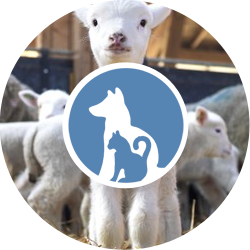 The subject of this period is farm animals.
The subject of this period is farm animals.

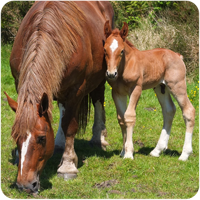 A visit to the farm
A visit to the farm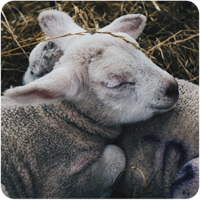 Normal lambing
Normal lambing
 To be able to do all the assignments correctly, you need to know some words and sentences.
To be able to do all the assignments correctly, you need to know some words and sentences.
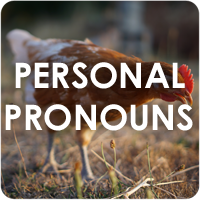 In Theme 1 you've learned about personal pronouns.
In Theme 1 you've learned about personal pronouns.
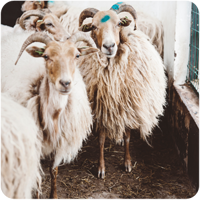
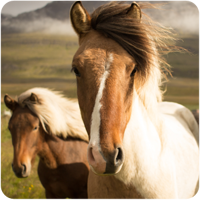
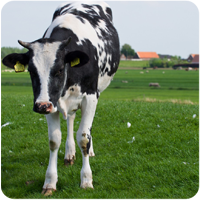 Tell me about your visit to the farm?
Tell me about your visit to the farm? An email about visiting a farm.
An email about visiting a farm. What have you learned in this period?
What have you learned in this period?
